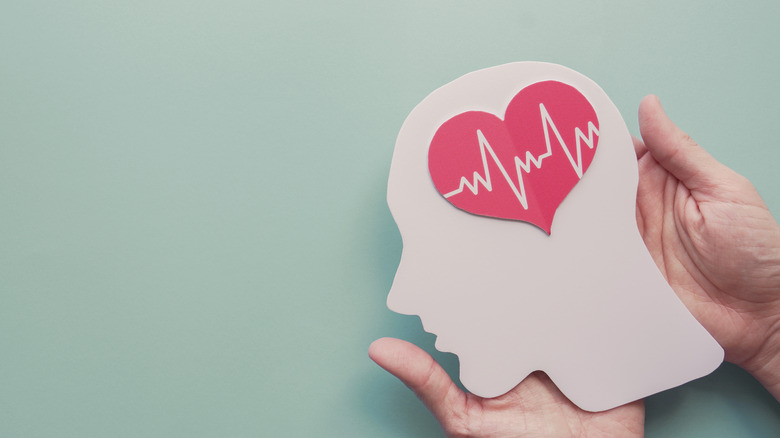Study Shows How High Blood Pressure Can Affect Your Mental Health
High blood pressure — or hypertension — has become an epidemic, affecting 47% of adults within the United States alone (per Centers for Disease Control and Prevention). Aptly nicknamed the silent killer, hypertension was the primary cause of death for 670,000 Americans in 2020.
The American Heart Association explains that the heartbeat creates pressure that pumps blood through the blood vessels. Our blood pressure is measured by examining the systolic pressure, which occurs when the heart pumps blood out, and the diastolic pressure, which is created between beats. When we have high blood pressure, the heart and blood vessels work harder to pump blood through our bodies. Eventually, the impact caused by this elevated pressure harms the tissue of the artery walls, allowing plaque to build up inside of them. People with high blood pressure are at an increased risk of conditions like arrhythmia, heart attack, and stroke. And according to a new study, mental illness as well.
The study, recently published in General Psychiatry, found a link between diastolic blood pressure and neuroticism — a personality trait characterized by a tendency to feel more threatened and distressed (per Britannica). People with neurotic personalities are more susceptible to negative emotions like depression, anxiety, anger, self-consciousness, and irritability.
Examining the link between hypertension and neuroticism
For this particular study, researchers examined systolic and diastolic blood pressure, pulse pressure, and hypertension, and their relationship to anxiety, depression, neuroticism, and subjective well being (per Medical News Today). While most of the factors being observed showed no significant relationship, researchers found that diastolic blood pressure appears to have a "genetic causal effect on neuroticism" (via BMJ).
According to BMJ, researchers acknowledged that there were limitations to the study. They could neither rule out the possibility of one gene affecting several traits, nor confirm if these findings extend to people outside of European ancestry. Medical News Today also notes that they were unable to determine whether psychological characteristics were the cause of the elevated blood pressure.
With that being said, the findings indicate that more research is needed to determine the relationship between mental health and hypertension — as it could very well affect more than just our physical health.


